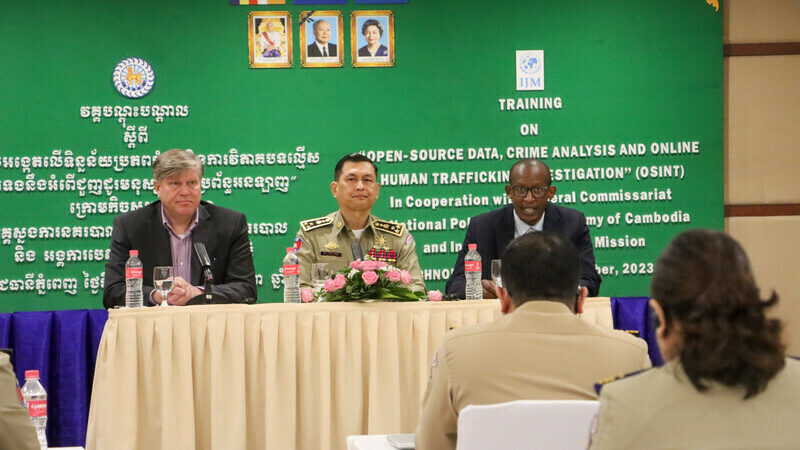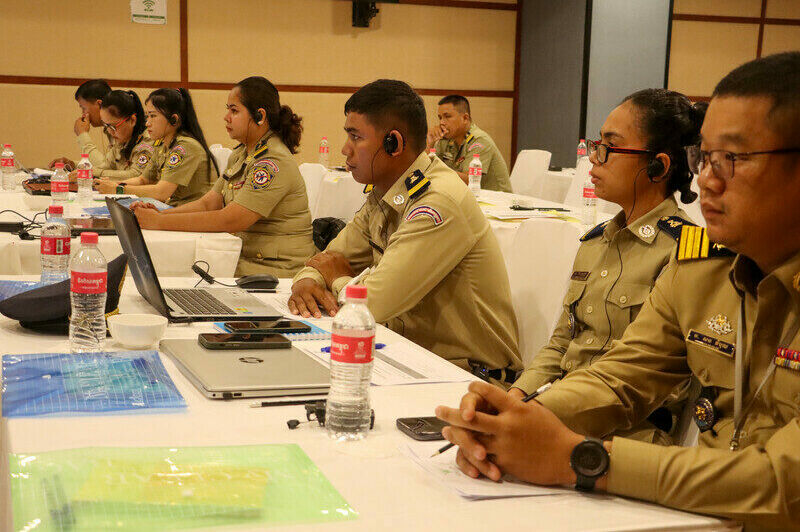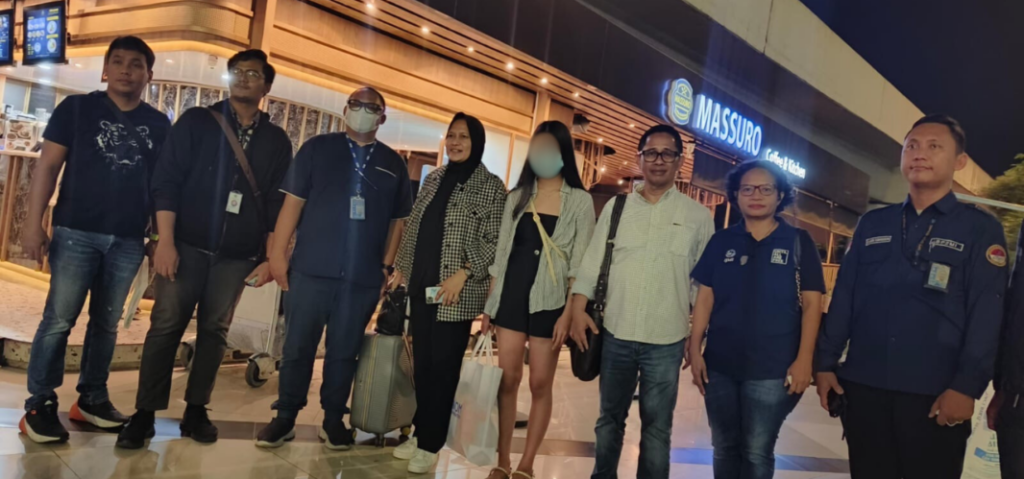Asia-Pacific
Cambodian National Police Officers Receive Training on Open-Source Data Investigation for Human Trafficking Cases

CAMBODIA – From 18-20 September 2023, International Justice Mission (IJM) Cambodia, in collaboration with WINROCK International and under the auspices of the General Commissariat of National Police organized a training on “Open-Source Data, Crime Analysis of Online Human Trafficking Investigation” for 35 National Police officers from across the country.
The three-day training course provided participants with an overview of the tools and techniques to investigate open-source data to support their casework investigation. In particular, the training focused on increasing the capacity of participants to use open-source data collection tools to improve their basic knowledge of how devices work and know when to use them most effectively in human trafficking investigations.
The training was chaired by His Excellency Lt. Gen. Chiv Phally, Deputy Commissioner General of the General Commissariat of National Police.
“After police officers attended this training course, I realized that the task of investigating, interviewing and gathering evidence to identify victims of human trafficking and sex trafficking, especially those in the IT sector,” said Gen. Chiv Phally. “Interviewers, facilitators, interrogators, and victims’ dispatchers must adhere to ethical principles for victim interviews without causing harm, danger, social discrimination or embarrassment to the victim.”
Although the three-day training was intensive, the participants found it to be invaluable, as it equipped them with the skills and knowledge, they need to use open-source data to investigate human trafficking cases more effectively. The training covered a wide range of topics, including how to identify and collect open-source data, how to use open-source data to identify and track suspects and how to use open-source data to gather evidence of human trafficking crimes. The participants also learned about the legal and ethical considerations of using open-source data in law enforcement investigations.
One of the participants, Maj. Gen. Kim Pheap, deputy director of the Department of Anti-Human Trafficking and Juvenile Protection, said that the training was “very helpful” and that he learned a lot of new things. He said that he is now more confident in his ability to use open-source data to investigate human trafficking cases.
“In Thailand and other countries, there are registered ships and boats that we have the opportunity to inspect. In the future, as law enforcement officers, we can use the lessons we learned during our three-day training to implement our work and identify and rescue any trafficked or trapped laborers on these vessels. We can also enhance our cooperation with other law enforcement officers in this effort,” said Maj. Gen. Kim Pheap.

“Because a thorough understanding of the right tools can facilitate a smooth investigation and provide broad insights through the use of technology, we need these tools to ensure a smooth investigation and build public trust in the effectiveness of our results,” said Chamroeun Savatey, a police officer from the Phnom Penh Municipal Police.
The training on open-source data investigation for human trafficking cases is an important step in the fight against this crime in Cambodia. By providing police officers with the tools and skills they need to investigate human trafficking cases using open-source data, the training will help to protect victims and bring traffickers to justice.
“One of the main challenges of conducting open-source investigations online is that the information landscape is constantly changing,” said Eric Heintz, a Global Analyst, and a speaker at the training. “This means that police need to be constantly adapting their tools and techniques to keep up with the latest trends. However, there are also many opportunities associated with conducting open-source investigations online. For example, police can use open-source data to identify and track suspects, gather evidence of crimes, and connect with victims and witnesses.”




